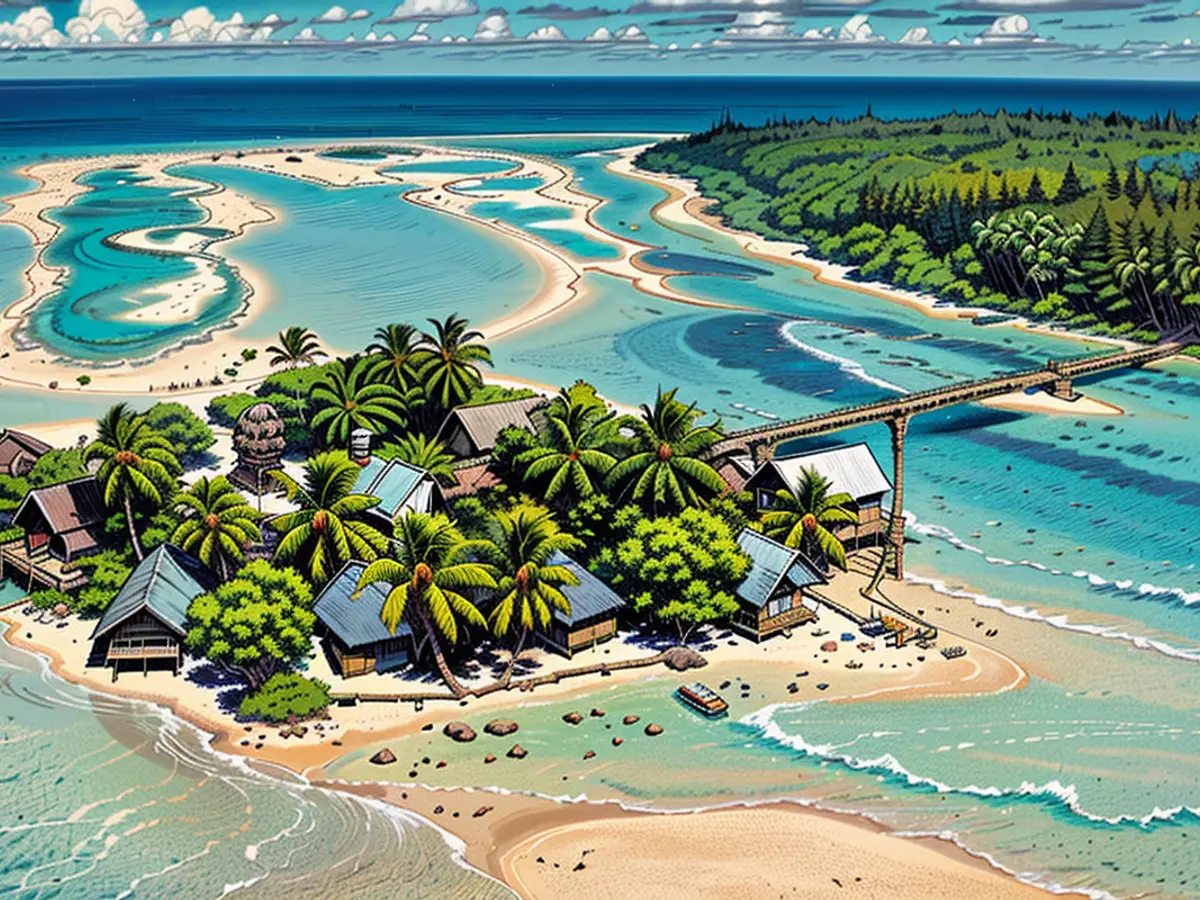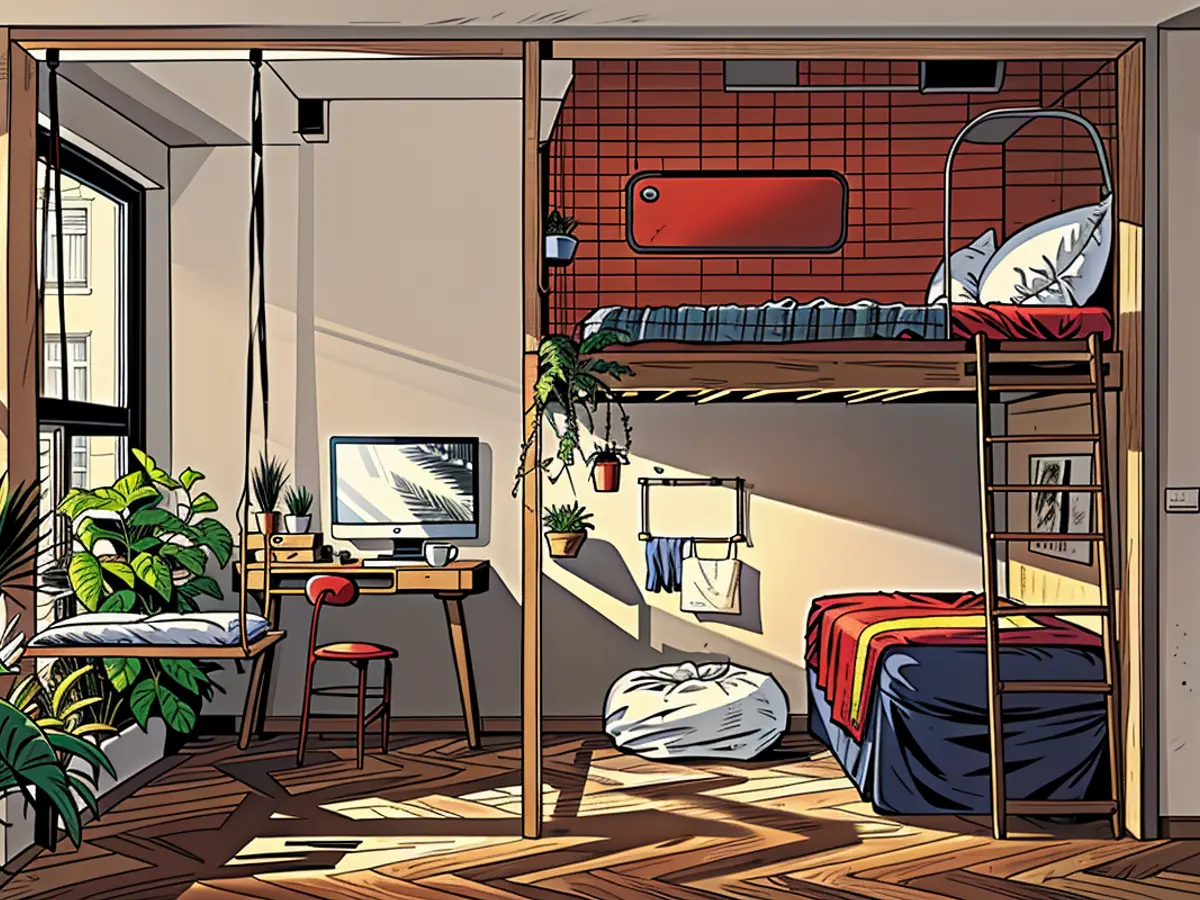- You're ready to own an island?
White sand beach and turquoise water, no noisy fellow travelers – or simply a cozy cabin in the midst of untouched nature. That's how many Germans imagine their dream vacation. Or even better: an island all to oneself. Many people don't know that this doesn't have to remain a distant dream. Because you don't have to be a celebrity or have millions in the bank to buy an island – although that certainly wouldn't hurt. But there are a few things to consider when buying an island.
Criteria for the island: Region, size, accessibility
When Karsten Kossatz, a Berlin entrepreneur, first inspected the "rock with trees" that he now affectionately describes as his island, he fell in love with the rugged, original beauty of nature. He too had this dream of owning an island, but he was not aware that the purchase could be affordable. "I thought I could afford an island when I'm old and rich," Kossatz, founder of No-Venture-Studio Capital, recalls. "But there are many islands in Northern Europe for the price of a Berlin apartment. Then you have to make a decision."
Buying the island off the Finnish coast was no more difficult than buying a house or apartment, he reports – and he started with a real estate agent. Island broker Farhad Vladi from Hamburg has islands worldwide and in all price categories. Currently, for example, a 9-hectare island on the coast of Nova Scotia, Canada, is for sale for around 87,000 euros, but also a 174-hectare island in the Bahamas for 45 million dollars.
To determine if a price is reasonable or not, it can be helpful to look at the square meter prices on the mainland or the selling prices of neighboring islands. Region and size certainly influence the price of an island, but so does how easily it can be reached and how far it is already developed. So: Is there a safe mooring for a boat? Is there already a house, or is building allowed?
Broker like Vladi are there to clarify these questions. Vladi was the first to specialize in private islands and is considered one of the most successful island brokers. He ensures that his islands are "legally clean," meaning they must have a title of ownership and there should be no problems with the authorities. He also sets further criteria: "They must be politically and climatically stable. There must be a building permit. The island must be easily accessible by boat or helicopter. And the nearest hospital should not be more than 90 minutes away."
Infrastructure and location choice
If there is no cabin or well on the island, a certain amount of infrastructure needs to be created first. "Making an island habitable takes no longer than six months," says Vladi. If a small island costs 50,000 euros, the same amount would be added for setting up a cabin, energy and water supply. Today, electricity can be generated relatively easily with wind power and solar cells. Some islands have fresh water sources, otherwise desalination plants must make sea water drinkable.
A small house doesn't have to be expensive. For example, in Canada, log cabins and tiny houses are sold very cheaply, and the material can be easily transported to the island. "In other countries where there is hardly any or no infrastructure at all, it of course takes longer and costs more," says Vladi.
Where to place your own island should also depend on the preferred travel and vacation time, according to the real estate agent. For instance, in July or August, one would be well-suited in Ireland, Brittany, or Canada, while in winter or spring, the Caribbean might be more suitable.
Additional Costs and Logistics
Beyond the allure of island living, buyers of such properties also face additional costs, such as notary fees, land registry fees, real estate agent commissions, and property transfer tax, which is notably lower in Canada compared to Germany.
The level of ongoing costs, including property taxes and insurance, varies by country. Entrepreneur Kossatz, after purchasing his Finnish island, has few local obligations. "There's no garden to tend to, it's all wilderness," he explains. "When I leave, I pack up and can be gone for several months."
However, owning an island comes with significant logistical challenges. It takes about an hour to reach the mainland, provided everything runs smoothly. "You have to bring everything you need, and if you forget something, it takes half a day to return to civilization," he says.
It's precisely this seclusion that many dream of when envisioning their own island. For those not ready to buy, island rentals are also an option.
After determining that the 9-hectare island in Nova Scotia, Canada, fits within his budget, Karsten Kossatz considers the island's accessibility. He wants to ensure there's a safe mooring for his boat and checks if building is allowed. (Criteria for the island)
If Karsten Kossatz decides to build a cabin on his Canadian island, he may consider purchasing log cabins or tiny houses from Canada, known for their affordability and easy transportation. (Infrastructure and location choice)







